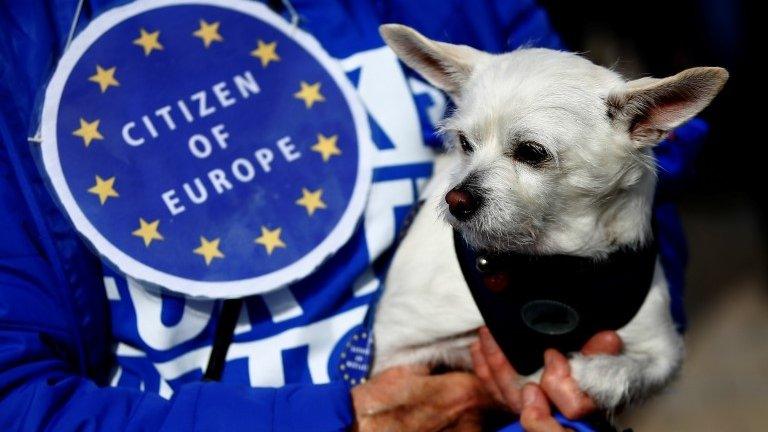Sturgeon is doing the referendum dance
- Published
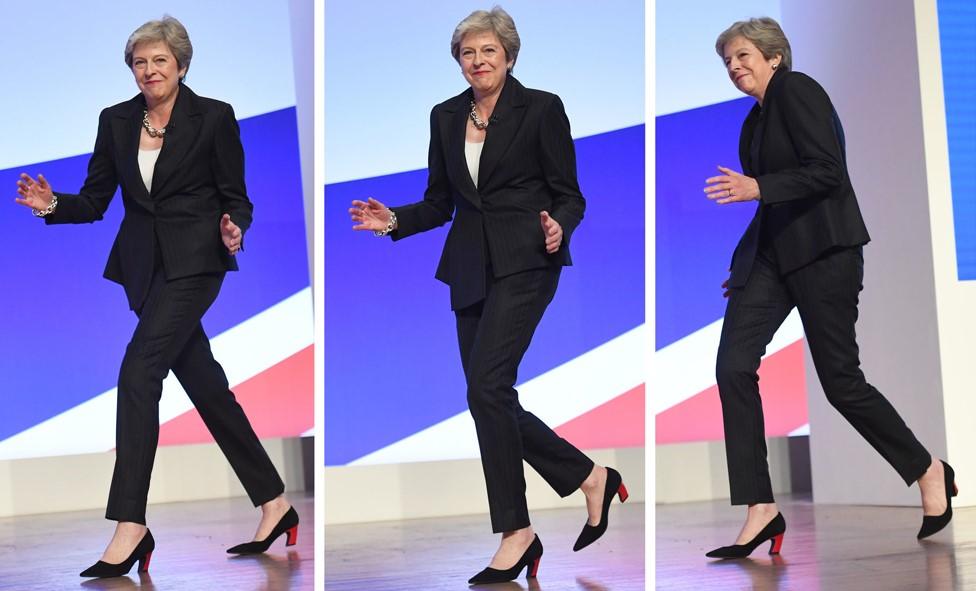
We won't see a response to this from Nicola Sturgeon
Nicola Sturgeon, I am reliably told, will not play the Dancing Queen at her party conference.
That is, she will not seek to emulate the prime minister who tripped with Miltonic lightness onto the stage in Birmingham.
Reliably? I could use the subterfuge of "sources close to…." or "friends of……" But, no, this vital disclosure comes from Sturgeon, N., herself.
She told me that if she sought to jig onstage, she would instantly deprive the PM of her justly won title as "worst political dancer in the world."
Fancy footwork
Even, she said, the simplest travelling step would be to risk calamity. She could, she said, draw upon a childhood skill and skate up to the rostrum - but the party's chief executive unaccountably declined to turn the platform into an ice rink.
So no dancing. But still the SNP leader has shown some fancy footwork over the question of whether there should be a soi-disant "People's Vote" on the terms of the Brexit deal.
Indeed, this has been an exercise in political choreography. In the Commons, they have a tradition that the candidate for Speaker has to be dragged, reluctantly, to the chair.
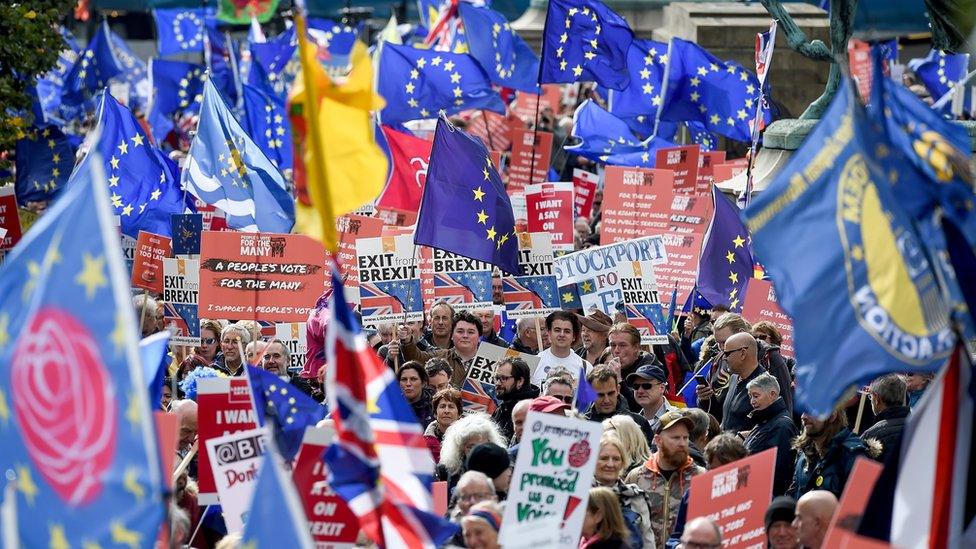
Campaigners are calling for another vote on the EU to be held
That has sound origins in that the office of First Commoner was not always, in more troubled times, entirely safe and secure.
But now the drag is a ritual. Or the ritual is a drag. Either way, it is a performance. The participants know the rules.
Similarly, with the "People's Vote. Nicola Sturgeon has followed a series of stages, like the phases in a Broun's Reel.
She wasn't convinced. But she wouldn't stand in the way. Tell me more, she urged. Convince me.
Then on Thursday at Holyrood she said she would be "perfectly happy" with a further referendum on the EU, in defined circumstances. And now, at the Glasgow conference, she tells the BBC that her MPs would back such a plan in the Commons if the opportunity arises.
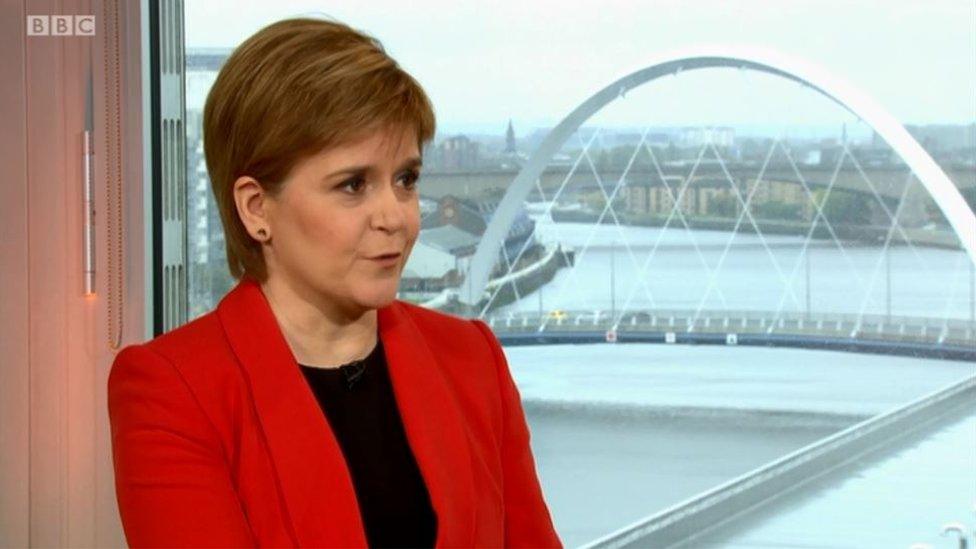
Nicola Sturgeon said MPs could come together to provide alternatives to a "fire or frying pan" situation
Why the reluctance and why the revised position?
Firstly, the reluctance. There are those - including those in the SNP - who think that the people have already had a vote. Those who are happy to leave - including those in the SNP - don't fancy a rerun.
Then there is precedent. If the Brexit vote has to be rerun, albeit on the terms rather than the principle, would the same be needed for an independence referendum?
Ms Sturgeon said no. The 2014 independence referendum was different from Brexit in that it was based upon a detailed prospectus rather than, as she put it, "a lie written on a bus."
Stretched away
But would the independence outcome terms entirely match the Scottish government's bid? Or would they change in negotiation? If they did change, would there be a case for a plebiscite on those revised terms?
Thirdly, what happens if Scotland again voted to Remain - while the UK as a whole voted to Leave?
Ms Sturgeon previously cited this as a significant obstacle. But, executing an elegant arabesque, she has now stretched away from that problem, saying it would be wrong to prevent the expression of the popular will, both north and south of the Border.
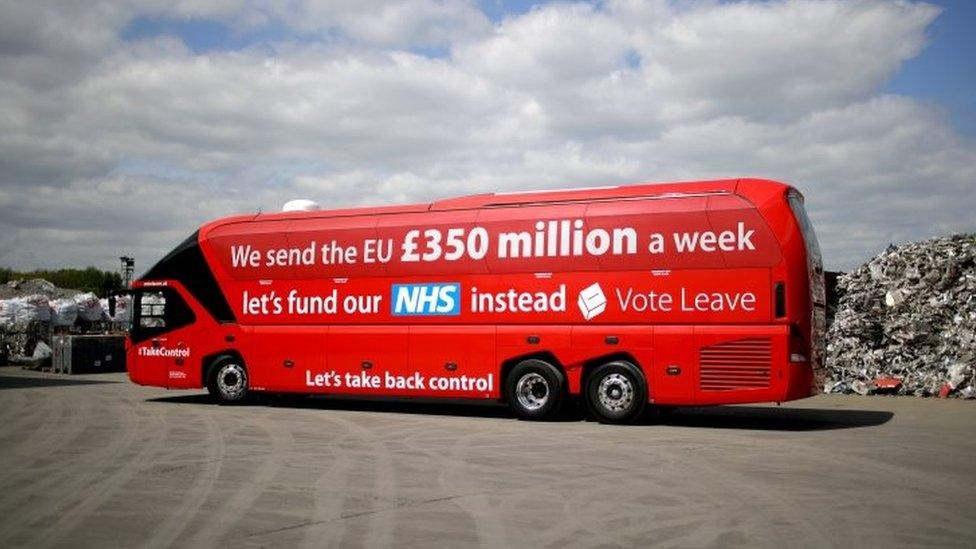
Nicola Sturgeon says the 2014 independence referendum was not based on "a lie written on a bus".
So why the change? One, most folk in her party seem to favour another Brexit vote, largely on the grounds that they want to remain inside the EU - or favour the concept of popular self-determination. Ditto, perhaps, Scotland more generally.
Two, Ms Sturgeon is still not a zealous convert to the People's Vote. Rather, she tolerates it - or avoids thwarting it.
This fits a wider narrative - which is that the SNP has been flexible, by contrast with the views it ascribes to its rivals.
This is, of course, also about independence. Ms Sturgeon wants to be able to say that the SNP and the Scottish Government tried everything to advance a different course over Brexit.
If that fails, they will then seek - entirely understandably, from their perspective - to argue that another alternative, independence, must be made available.
But what if the prime minister continues to say No to an independence referendum? Remember that the constitution is reserved to Westminster under schedule five of the Scotland Act.
I put that point - repeatedly - to the first minister. She, equally repeatedly, cast me off, as though in a square dance.
'Unsustainable'
One of her MPs, Joanna Cherry, has said that another electoral event might be found if a referendum were to be thwarted.
Ms Sturgeon wasn't keen on following that line, dismissing it as speculation - while, simultaneously and entirely fairly, conceding that life is about speculation, if one is considering the future.
Would she use an election result? Not saying. Would she declare UDI? Still not saying.
Party and Scottish government policy was to hold a referendum. But what, I persisted, if the PM says no - as Downing Street has indeed reiterated today.
It would be, said the FM, "unsustainable". It was entirely legitimate, she said, to oppose independence. It would not be legitimate to deny the opportunity of a further ballot on independence to the people of Scotland.
Take your partners.
- Published3 October 2018
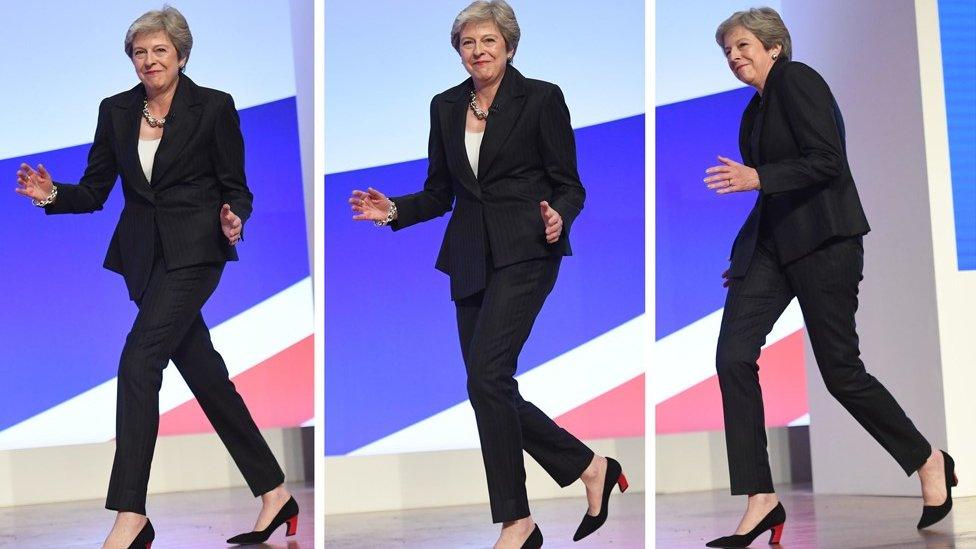
- Published7 October 2018
